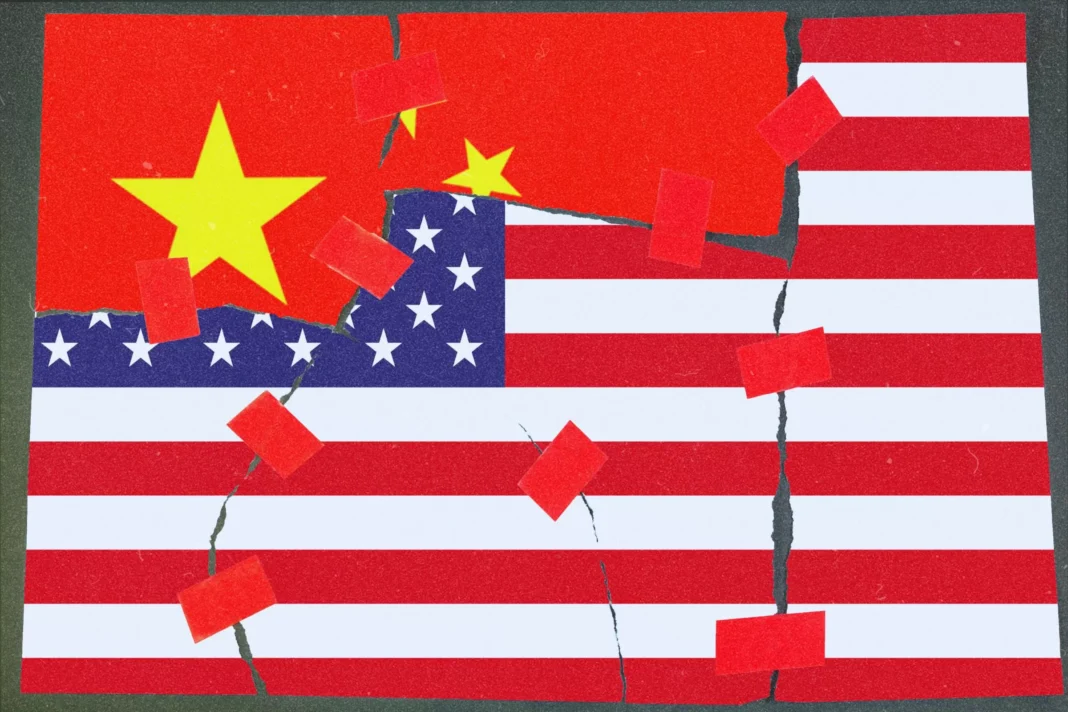Confronting the Reality of China’s Threat to the U.S.-Led Global Order: A Call for a Deep, Hard Reassessment
In recent years, China has emerged as a global superpower, with a rapidly growing economy and an increasingly influential presence on the world stage. While this may seem like a positive development, it also poses a significant threat to the U.S.-led global order that has been in place since the end of World War II. As such, it is imperative that we confront the reality of this threat and undertake a deep, hard reassessment of our approach to China.
For decades, the United States has been the dominant force in shaping the global order, promoting democracy, human rights, and free trade. This has led to unprecedented levels of prosperity and stability around the world. However, China’s rise has challenged this order, with its authoritarian regime, disregard for human rights, and aggressive economic policies. As a result, the U.S. must now confront the reality that China’s actions pose a significant threat to the global order and take decisive action to address it.
One of the key areas where China’s threat is most evident is in its economic policies. China’s state-controlled economy allows it to manipulate markets and engage in unfair trade practices, giving it an unfair advantage over other countries. This has led to a massive trade deficit with China, which not only harms the U.S. economy but also undermines the global trading system. Additionally, China’s Belt and Road Initiative, a massive infrastructure project spanning multiple continents, has been criticized for its lack of transparency and potential to create debt traps for developing countries. This aggressive economic expansion poses a significant challenge to the U.S.-led global order and must be addressed.
Furthermore, China’s authoritarian regime and disregard for human rights are in direct conflict with the values that the U.S. and its allies have long championed. The Chinese government’s crackdown on dissent, censorship of the media, and suppression of minority groups are all violations of basic human rights. As a leader in the global order, the U.S. has a responsibility to stand up for these values and confront China’s actions.
In addition to these economic and human rights concerns, China’s military expansion and aggressive actions in the South China Sea have raised tensions in the region. Its increasing military capabilities and assertive behavior have led to concerns about its intentions and potential conflicts with other countries. This poses a significant threat to the stability of the region and the global order as a whole.
Confronting the reality of China’s threat requires a deep, hard reassessment of our approach to the country. This reassessment must involve a comprehensive strategy that addresses all aspects of China’s actions, including its economic policies, human rights violations, and military expansion. It must also involve a coordinated effort with our allies and partners, as no single country can effectively confront China alone.
One key aspect of this reassessment should be a reevaluation of our trade relationship with China. The U.S. must take a firm stance against unfair trade practices and work towards creating a more level playing field. This may involve imposing tariffs or other measures to protect American industries and workers. Additionally, the U.S. must work with its allies to develop a unified approach to address China’s economic policies and ensure fair trade practices.
In terms of human rights, the U.S. must continue to speak out against China’s violations and hold the country accountable for its actions. This may involve imposing sanctions or other measures to pressure China to improve its human rights record. The U.S. must also work with its allies to raise awareness of these issues and push for change within China.
Furthermore, the U.S. must maintain a strong military presence in the region to deter any aggressive actions by China. This may involve increasing military cooperation with allies and partners in the region and conducting joint military exercises to demonstrate a united front against China’s expansionist policies.
In conclusion, the rise of China poses a significant threat to the U.S.-led global order, and it is time for a deep, hard reassessment of our approach to the country. This reassessment must involve a comprehensive strategy that addresses all aspects of China’s actions and involves a coordinated effort with our allies and partners. By confronting the reality of China’s threat and taking decisive action, we can ensure the continued stability and prosperity of the global order for generations to come.


